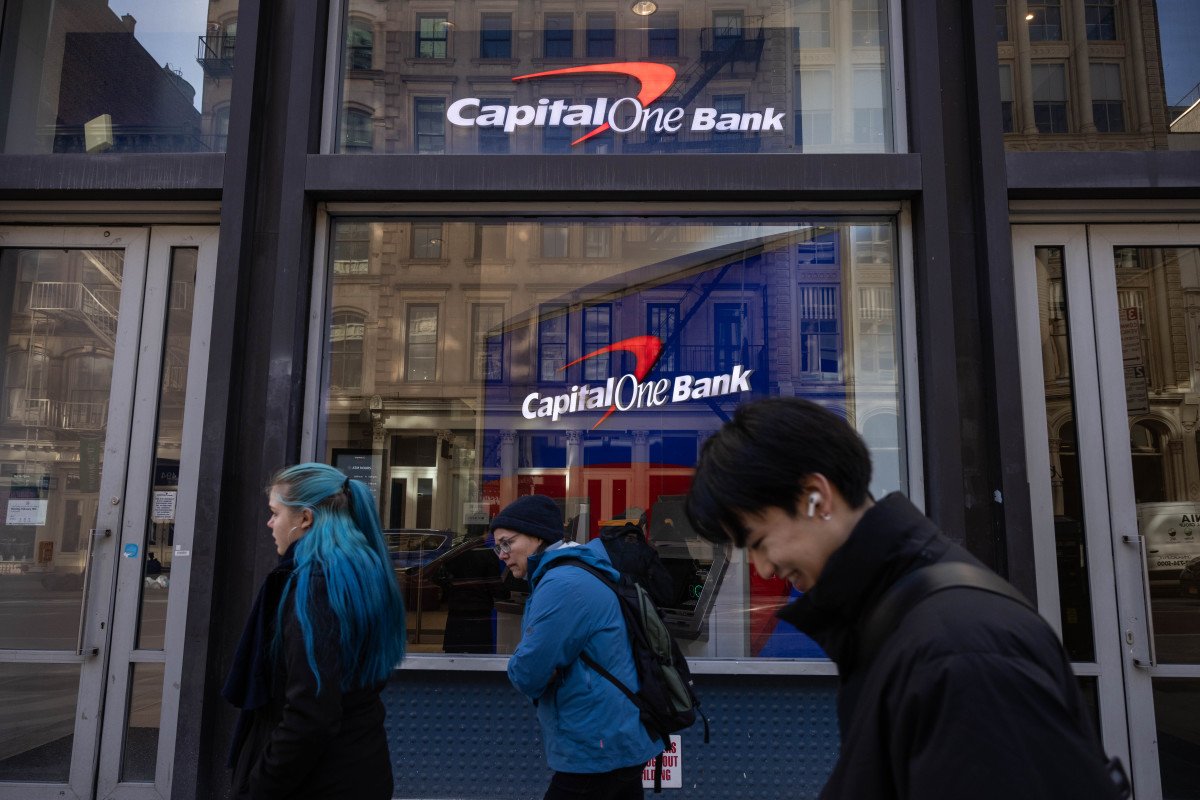At a truck close in Nashville, Tennessee, prolonged-haul driver Bruce D. Mendenhall became seated in his cab when a homicide detective approached him.
Police were looking a serial killer. Weeks earlier, the bare physique of a 25-Three hundred and sixty five days-former lady, Samantha Winters, had been demonstrate in a dumpster.
Winters became wrapped in plastic and duct tape, then shot in the encourage of the pinnacle with a .22 pistol.
Now yet every other sufferer, Sara Nicole Hulbert – also 25 – had been stumbled on dead. She, too, became shrouded in plastic and shot in the pinnacle.
These victims were two of almost 1,000 females who police officers believed had been murdered by prolonged-haul truck drivers. And, in the end, they had a crash in the hunt.
At a truck close in Nashville, Tennessee , prolonged-haul driver Bruce D. Mendenhall (pictured) became seated in his cab when a homicide detective approached him.
Police officers accept as true with that as regards to 1,000 females enjoy been murdered by prolonged-haul truck drivers.
The detective from Nashville Metro Police Division requested Mendenhall merely: ‘Are you the particular person we now enjoy been shopping for?’
Mendenhall shrugged. ‘Whenever you happen to claim so,’ he responded.
What police stumbled on within the 56-Three hundred and sixty five days-former’s truck cab defied perception. Investigators called it ‘a killing chamber’.
The stash of torture implements integrated ‘a rifle, a nightstick, tape, handcuffs, latex gloves, intercourse toys and a uncover of bloody clothes,’ according to the police yarn.
DNA on the clothes matched five murdered or missing females. One became Carma Purpura, a 31-Three hundred and sixty five days-former mom of two who became last seen at a truck close in Indianapolis, Indiana – as regards to 300 miles away.
Also in the truck were Purpura’s cellphone and her bank card.
Blood spatter in the cab urged Mendenhall had killed her there – yet he refused to dispute the build her physique became hidden. Her remains weren’t stumbled on for yet every other four years.
Mendenhall – from Illinois and married with two daughters – became arrested in 2007 and therefore convicted of the murders of Winters and Hulbert.
He has also been charged with the killing of Purpura – and is suspected of murdering as a minimum five more females. Two, at the side of intercourse-employee Robin Bishop and hitchhiker Belinda Cartwright, were likely scramble down by his truck.
Nonetheless these deaths are no longer isolated, according to venerable Assistant Director of the FBI Frank Figliuzzi.
He has spent years investigating the phenomenon of serial killers who use trucking as a conceal.
In a new book – ‘Prolonged Haul: Attempting the Highway Serial Killers’ – Figliuzzi lays bare in forensic component how a entire bunch of truckers trawl relaxation stops, resorts and roadside restaurants for victims.
They abolish and whisk on, all nevertheless untraceable. Most handsome, the FBI’s ‘Highway Serial Killings Initiative’ (HSK) estimates that between 400 and 500 truckers could well likely be implicated in a wide selection of murders over the past 35 years.
As many as 850 females enjoy disappeared or been stumbled on dead alongside the necessary interstate routes. And yet superb a handful of killers enjoy been caught.
The HSK is led by Catherine DeVane, she makes a speciality of the behavioral prognosis of criminals. Her group match crimes to killers. Forensic evidence is necessary.
So too is identifying the ‘modus operandi’ – an particular particular person killer’s hallmark systems.
The hallmark of Robert Ben Rhoades, one amongst the first ‘truck-close killers’ on yarn, became a in unhappy health fetish: He shaved the pubic hair of his victims.
The hallmark of Robert Ben Rhoades (pictured), one amongst the first ‘truck-close killers’ on yarn, became a in unhappy health fetish: He shaved the pubic hair of his victims.
Rhoades is idea to enjoy killed 50 females over 15 years. Love Mendenhall, he constructed a mobile torture dungeon into the encourage of his truck.
Rhoades is idea to enjoy killed 50 females over 15 years. Love Mendenhall, he constructed a mobile torture dungeon into the encourage of his truck.
At the encourage of its steel door, females were held captive in handcuffs. Rhoades inflicted agonies by piercing their flesh with fish-hooks. Many were prostitutes. His last sufferer, Regina Walters, became no longer – genuinely, she became appropriate 14 years former.
She had ran away from her dysfunctional family dwelling in Pasadena, Texas, alongside with her boyfriend Ricky in 1990. Rhoades picked them up shut to Houston and killed Ricky, taking pictures him in the pinnacle.
He kept Regina prisoner, raping her consistently, for weeks. To torment her family, he even called her father and told him, ‘I made some changes. I decrease her hair.’
Regina’s corpse became stumbled on at a deserted Illinois farmhouse. She had been strangled.
Catherine DeVane divides trucker homicides into two categories. Some males must ‘retain watch over existence and loss of life,’ she says. They must ‘feel the energy of controlling the tip consequence’.
These killers generally rape and sexually torture their victims. They enjoy inflicting concern as effectively as wretchedness.
Assorted males abolish out of compulsion. ‘They set aside no longer will have to enjoy intercourse,’ says DeVane. ‘They appropriate must raze somebody.’
The 2 categories can overlap, as in the case of Mendenhall. A couple of of his killings were protracted workout routines in sadism. Others were literally hit-and-scramble.
Within the U.S., there are 1,000,000 truckers.
A truly vital age neighborhood is forty five to 54, nevertheless 7 percent are 65 or older. Over 70 percent are white, and appropriate 12 per cent are dim. Honest about 10 percent admit to ingesting each day, 20 percent record themselves as binge drinkers, and more than 25 per cent admit to using amphetamines and cocaine to preserve unsleeping on prolonged hauls.
The HSK group has charted truck-close killings alongside the final necessary interstate routes in the U.S. Nonetheless one stands out.
On a intention, it is a prolonged spatter of crimson dots like blood droplets, from Wilmington, North Carolina, to Barstow, California. The crimson dots scramble via Raleigh, Nashville, Memphis, Exiguous Rock, Oklahoma Metropolis, Amarillo, Albuquerque and Flagstaff. That is the I-40 interstate.
Across The united states, appropriate 25 ex-truckers are in detention center for raze. DeVane and the HSK enjoy been instrumental in the arrest and prosecution of a form of them.
At the encourage of its steel door, females were held captive in handcuffs. Rhoades inflicted agonies by piercing their flesh with fish-hooks. Many were prostitutes. (Pictured: Rhoades’ torture chamber positioned internal his truck)
One amongst Rhoades’ victims became 14-Three hundred and sixty five days-former Regina Walters (pictured by Rhoades), a runaway from Pasadena, Texas. A horrifying last image of Walters reveals her with a shaved head, forced exact into a dim costume and excessive heels, having a peek petrified of Rhoades at the encourage of the digicam.
One is Dellmus Colvin, a shaven-headed dim man now 64 years former. He became dubbed the ‘Interstate Strangler’. Following his arrest in 2004, Colvin told detectives he didn’t retain a tally of his murders.
He could well now not be unsleeping all of them. Nonetheless later he estimated he’d killed between 47 and 52 females, nearly all intercourse workers.
Love Mendenhall, he wrapped their corpses in plastic sheeting and duct tape. Nonetheless he denied having sexual intercourse with the our bodies, and insisted rape became no longer his chief motive. He appropriate enjoyed killing, he acknowledged.
Detectives believed him. Most incessantly at some point soon of interviews, he burst out laughing as he recalled the murders.
On one occasion, he acknowledged, he took a phone name from his mom whereas he became killing a girl. None of that skittish him. He cherished to trip looking into his victims’ eyes as they died, he acknowledged.
‘I continuously sleep effectively at evening,’ he added.
Colvin has been convicted of seven murders and is held in Lebanon Correctional Establishment, Ohio. He told investigators the build many different victims were buried nevertheless refuses to raze recordsdata on killings he committed in states the build raze carries the loss of life penalty.
Most of Colvin’s victims, and the massive majority of females killed by truckers, are ‘lot lizards’.
That’s what the drivers name intercourse workers at truck stops, part of a coded language that has grown up over a protracted time.
Dr Celia Williamson, a social-work professor at the University of Toledo, has spent 30 years studying adult prostitution and the intercourse trafficking of minors in The united states.
‘Truck-close and motorway-level prostitution has its have culture, its have language, and its have processes,’ she told Frank Figliuzzi. General phrases embody ‘trick’, a trucker shopping for intercourse, and ‘condominium’, the trailer at the encourage of his cab.
A ‘stable’ is a pimp’s coterie of intercourse workers or ‘shorties’. A girl who is ‘out of pocket’ is working for herself – even supposing that’s a foul tactic. Without somebody to present protection to or look out for her, she is easy prey.
Which could well just be why ‘out of pocket’ can consult with a girl who has merely disappeared.
Dellmus Colvin (pictured) is a shaven-headed dim man now 64 years former. He became dubbed the ‘Interstate Strangler’. Following his arrest in 2004, Colvin told detectives he didn’t retain a tally of his murders
To preserve an stare on the youthful, more susceptible females, pimps use older, skilled intercourse workers. These females are identified as ‘bottoms’.
It’s far customary for a ‘bottom’ to accompany a younger prostitute on her rounds as she goes from cab to cab at a truck close, knocking on dwelling windows and offering her products and services.
It’s now not outlandish for a pimp to ask every of his ‘shorties’ must raise encourage $1,000 an evening – and retain working except break of day if crucial.
Dr Williamson capabilities out how the final energy is on the truckers’ facet. ‘It be no longer a enjoyable experience,’ she says, ‘for a girl to position her face in the lap of a trucker who’s been using for ten hours.’
Nonetheless the ‘shorties’ are determined to make money. If they don’t meet their targets, they’ll be overwhelmed. Addicts (and most truck-close prostitutes are customers) will likely be denied their treatment, generally heroin or meth.
The drivers enjoy the money. They also retain watch over the rendezvous, the cab of their truck. And when the encounters are over, they’ll merely power away.
Prostitutes who yarn intercourse abuse are in most cases no longer taken severely. Too generally, police officers close taking notes – and close taking ardour – when they uncover how these females make cash.
That is all too appropriate even when concerned company yarn disappearances or suspected murders.
‘Must a male-dominated police power even be investigating such issues?’ asks Dr Williamson, ‘, police take part as effectively.’
Pimps and ‘bottoms’ narrate new girls guidelines on how to preserve themselves protected. This contains staying away from truckers with a reputation for violence. Nonetheless it also technique being constantly ready to hover.
‘All the very best intention via [oral sex],’ Dr Williamson told Figliuzzi, ‘whereas in the passenger facet of the vehicle, [the prostitute] areas her correct foot shut to the vehicle door, her correct hand shut to the door take care of. And she or he keeps her left hand free, to punch him in the face.’
Precautions like these were beside the point to the victims of Adam Leroy Lane. On a frigid summer season evening in Nashville, in 2007, he left his truck and went prowling via the streets.
Adam Leroy Lane (pictured) became sentenced to 25 years for the assault of Kevin and Jeannie McDonough’s 15-Three hundred and sixty five days-former daughter, Shea.
Breaking into the dwelling of Kevin and Jeannie McDonough, Lane stumbled on his technique to the bedroom of their 15-Three hundred and sixty five days-former daughter, Shea.
Kevin became woken by her say. He burst into the room and threw himself on Lane. Jeannie wrenched the 15-fling looking knife from his hand.
Miraculously, Shea survived – and Lane became sentenced to 25 years for the assault. He later also pleaded guilty to murdering two females and the tried raze of a third.
In his truck, police stumbled on knives, wire garottes and a martial arts throwing smartly-known particular person.
What no one is aware of for obvious, no longer even the FBI’s Highway Serial Killings Initiative, is how many different truckers raise these weapons of torture – and the very best intention many females’s our bodies enjoy by no technique been stumbled on.
Prolonged Haul: Attempting the Highway Serial Killers by Frank Figliuzzi is published by Harper Collins and out now.


 Waymo always show up doing some insane stuff on my timeline
Waymo always show up doing some insane stuff on my timeline


